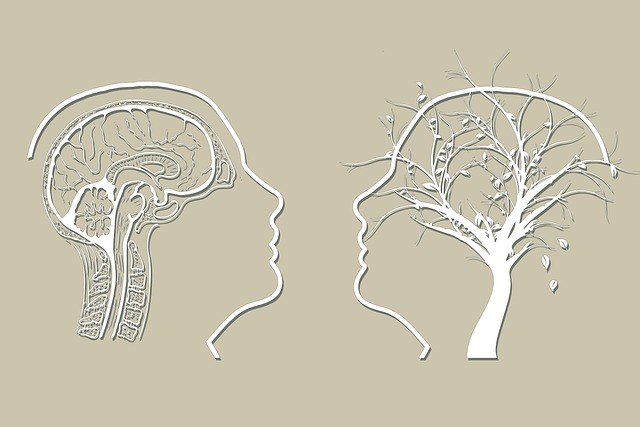Positive thinking is a powerful tool integrated into therapeutic practices like Centennial Drug Abuse-Substance Abuse Therapy, reducing stress, anxiety, and depression while fostering resilience. Cognitive Behavioral Therapy (CBT) and innovative formats like the Mental Wellness Podcast Series enhance recovery through accessible education and media resources. Personalized positive thinking exercises, including mindfulness and cultural competency training, improve mental wellness in therapy sessions. Implementing these practices leads to better coping mechanisms, self-esteem, decision-making, and long-term recovery for individuals addressing Centennial Drug Abuse. Holistic approaches prioritize mental health awareness, cultural sensitivity, compassion cultivation, and stress management for transformative, resilient outcomes.
Positive thinking exercises are gaining prominence as a powerful tool in substance abuse recovery, especially for addressing Centennial Drug Abuse. This article explores the transformative potential of positive thinking on mental health and its role in Substance Abuse Therapy. We delve into evidence-based practices, including Cognitive Behavioral Therapy (CBT), to design effective exercises. Learn how therapists can integrate these activities into sessions, measure success, and cultivate long-term benefits for individuals overcoming Centennial Drug Abuse.
- Understanding Positive Thinking and its Impact on Mental Health
- The Role of Cognitive Behavioral Therapy in Substance Abuse Recovery
- Designing Effective Positive Thinking Exercises
- Implementing and Integrating Exercises into Therapy Sessions
- Measuring Success and Long-Term Benefits for Centennial Drug Abuse Patients
Understanding Positive Thinking and its Impact on Mental Health

Positive thinking is a powerful tool that can significantly influence mental health and overall well-being. It involves cultivating optimistic attitudes, focusing on personal strengths, and interpreting challenges as opportunities for growth. This simple yet profound concept has been a cornerstone in various therapeutic practices, including Centennial Drug Abuse-Substance Abuse Therapy. By encouraging individuals to reframe negative thoughts and emotions, positive thinking exercises help reduce stress, anxiety, and depression, fostering a sense of resilience and emotional balance.
Research suggests that adopting positive thinking strategies can lead to improved mental wellness. It enhances coping mechanisms, boosts self-esteem, and promotes better decision-making abilities. In the context of a Mental Wellness Podcast Series Production, effective communication strategies can be employed to share insights on positive thinking techniques. Additionally, professionals in the field must engage in ongoing Risk Assessment for Mental Health Professionals to ensure they are equipped with the latest research-backed methods, thereby enhancing their ability to guide clients towards positive transformations.
The Role of Cognitive Behavioral Therapy in Substance Abuse Recovery

Cognitive Behavioral Therapy (CBT) has emerged as a powerful tool in the arena of substance abuse recovery, particularly at Centennial Drug Abuse centers. This therapeutic approach focuses on identifying and changing negative thought patterns and behaviors that contribute to addiction. By addressing underlying mental health issues and providing individuals with effective coping strategies, CBT empowers them to navigate triggers and cravings more successfully.
The integration of CBT into Substance Abuse Therapy goes beyond individual counseling sessions. It can be enhanced through innovative formats like the Mental Wellness Podcast Series Production, which offers accessible and engaging resources for ongoing support. Similarly, well-designed Mental Health Education Programs can equip individuals with knowledge about addiction, brain chemistry, and the science behind positive thinking. This holistic approach, combining therapy, education, and media production, creates a supportive environment fostering mental wellness and long-term recovery.
Designing Effective Positive Thinking Exercises

Designing effective positive thinking exercises involves tailoring activities that cater to individual needs and preferences. For individuals struggling with drug abuse or substance use disorders, like those seeking therapy through Centennial Drug Abuse-Substance Abuse Therapy programs, these exercises should focus on promoting emotional regulation skills. Incorporate mindfulness practices such as meditation or guided imagery to help participants cultivate a sense of inner peace and control over their thoughts and emotions.
Community outreach program implementation can further enhance these exercises by providing opportunities for social interaction and shared experiences. Encouraging participants to reflect on their progress and set achievable goals, whether through journaling or group discussions, strengthens the positive thinking process. Additionally, healthcare provider cultural competency training ensures that exercises are inclusive and respectful of diverse backgrounds, making them more impactful and accessible to all individuals seeking therapy.
Implementing and Integrating Exercises into Therapy Sessions

Implementing positive thinking exercises into therapy sessions for Centennial Drug Abuse-Substance Abuse Therapy can significantly enhance the overall effectiveness of treatment. These exercises are designed to foster mental health awareness, promote anxiety relief, and prevent burnout among individuals seeking recovery. By integrating these practices, therapists can create a supportive environment that encourages clients to challenge negative thought patterns and develop more adaptive coping mechanisms.
Regularly incorporating strategies such as mindfulness meditation, cognitive restructuring, and positive affirmations allows for a holistic approach to therapy. This not only addresses the underlying causes of substance abuse but also empowers individuals with tools to manage stress, improve their mood, and maintain long-term recovery. The goal is to help clients understand that positive thinking is a skill that can be cultivated and strengthened over time, ultimately contributing to improved mental health and well-being.
Measuring Success and Long-Term Benefits for Centennial Drug Abuse Patients

Measuring success and long-term benefits for Centennial Drug Abuse patients involves a multifaceted approach that goes beyond immediate outcomes. Substance abuse therapy, especially when infused with Compassion Cultivation Practices, can significantly alter the trajectory of an individual’s life. By fostering mental health awareness and cultural sensitivity in mental healthcare practice, therapists create safe spaces where patients can confront and overcome challenges.
This holistic process not only aids in addiction recovery but also promotes resilience, enhancing the patient’s ability to navigate future stressors without resorting to substance abuse. Long-term benefits extend to improved relationships, increased productivity, and a higher quality of life—all testaments to the transformative power of compassionate and culturally sensitive mental healthcare practices in addressing Centennial Drug Abuse.
Positive thinking exercises, when integrated into substance abuse therapy, hold significant promise in helping patients overcome addiction. By understanding the impact of cognitive behavioral therapy and designing tailored exercises, therapists can empower individuals to navigate their recovery journey with resilience and hope. Measuring success through long-term studies on Centennial Drug Abuse patients reveals that these practices not only enhance mental health but also foster lasting behaviors, marking a promising path forward for effective substance abuse therapy.













